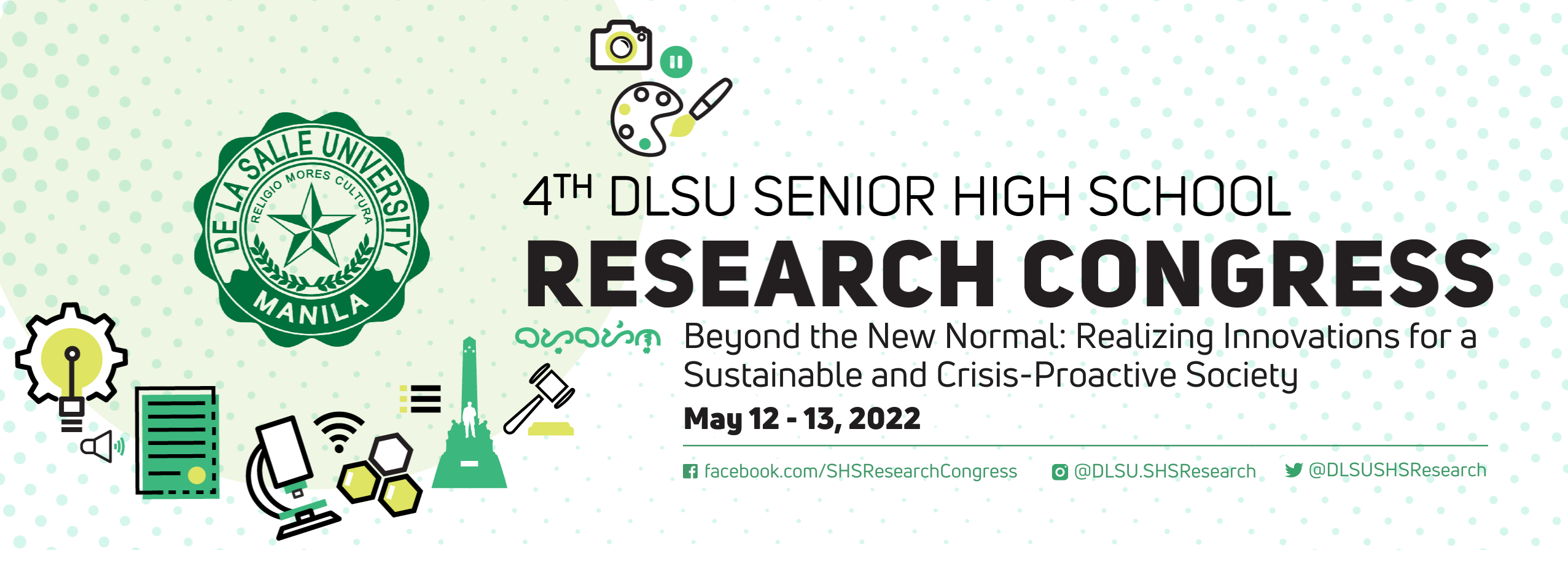Document Types
Paper Presentation
Research Theme (for Paper Presentation and Poster Presentation submissions only)
Gender, Human Development, and the Individual (GHI)
Research Advisor (Last Name, First Name, Middle Initial)
Angelo M. Alberto
Start Date
13-5-2022 8:00 AM
End Date
13-5-2022 10:00 AM
Abstract/Executive Summary
Countries around the globe have been affected in many ways by the Coronavirus Disease 2019 (COVID-19) pandemic (Gregorio, 2020). Citizens are encouraged to practice health protocols such as social distancing, handwashing, and mask-wearing. Since these practices can help lower infection rates and therefore benefit the whole community, even though they can cause inconvenience, compliance with them can be deemed a prosocial act. Filipinos have shown prosocial behavior through donating to community pantries (Suazo, 2021). The researchers were keen on studying the motivations of Filipinos to comply with health protocols and engage in prosocial acts. Herein, they focused on psychological factors, Empathy and Egoism. They used Weigel et al.’s (1999) model, the Interpersonal Reactivity Index (1983), and Galang et al.’s (2021) questionnaire for measuring Egoism, Empathy, and health protocol compliance, respectively, and devised their own questionnaire to measure prosocial acts. Results showed that Egoism was significantly correlated with belief in social distancing, but only with that one variable. The Empathy subscales, Empathic Concern (EC) and Perspective Taking (PT), significantly correlated with mask-wearing and social distancing. EC and PT also had a significant correlation with prosocial behavior and belief in social distancing, respectively. However, only the regression model with PT and social distancing had a statistically significant predictor. Overall, results suggest new information on human behavior amidst the COVID-19 pandemic.
Keywords
COVID-19 pandemic; health protocol compliance; prosocial behavior; Egoism; Empathy
Statistical Modeling of Prosocial Behavior and Health Protocols Compliance of ID120 and ID121 Senior High School Students of DLSU-Manila
Countries around the globe have been affected in many ways by the Coronavirus Disease 2019 (COVID-19) pandemic (Gregorio, 2020). Citizens are encouraged to practice health protocols such as social distancing, handwashing, and mask-wearing. Since these practices can help lower infection rates and therefore benefit the whole community, even though they can cause inconvenience, compliance with them can be deemed a prosocial act. Filipinos have shown prosocial behavior through donating to community pantries (Suazo, 2021). The researchers were keen on studying the motivations of Filipinos to comply with health protocols and engage in prosocial acts. Herein, they focused on psychological factors, Empathy and Egoism. They used Weigel et al.’s (1999) model, the Interpersonal Reactivity Index (1983), and Galang et al.’s (2021) questionnaire for measuring Egoism, Empathy, and health protocol compliance, respectively, and devised their own questionnaire to measure prosocial acts. Results showed that Egoism was significantly correlated with belief in social distancing, but only with that one variable. The Empathy subscales, Empathic Concern (EC) and Perspective Taking (PT), significantly correlated with mask-wearing and social distancing. EC and PT also had a significant correlation with prosocial behavior and belief in social distancing, respectively. However, only the regression model with PT and social distancing had a statistically significant predictor. Overall, results suggest new information on human behavior amidst the COVID-19 pandemic.


